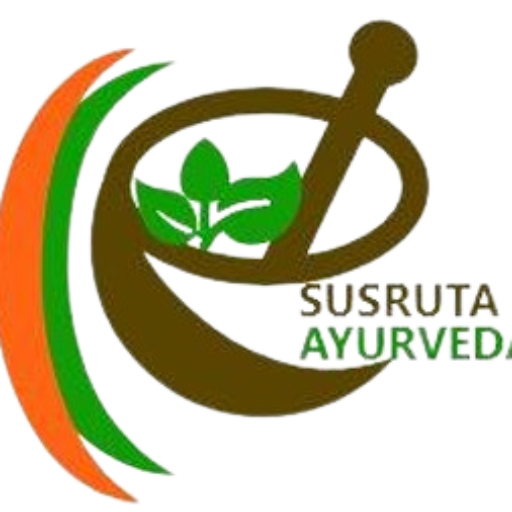Adaptogens’s Introduction: Ancient Wisdom for a Modern World
In a world increasingly obsessed with performance, productivity, and immunity, Ayurveda—the 5,000-year-old science of life—is having a renaissance. Wellness trends like biohacking, personalized nutrition, and stress optimization are becoming mainstream. Ayurveda is uniquely positioned to offer holistic, sustainable, and natural solutions. In 2025, the fusion of Ayurvedic adaptogens, immunity enhancement, and modern biohacking creates a powerful paradigm for optimal living.
What Are Adaptogens – and Why Does Ayurveda Matter?
Adaptogens are natural substances that help the body adapt to stress and restore physiological balance. While the term originates from 20th-century Russian science, Ayurveda has used adaptogenic herbs for millennia under the category of Rasayana (rejuvenatives).
Top Ayurvedic Adaptogens for 2025:
- Ashwagandha (Withania somnifera): Reduces cortisol, improves sleep, and enhances stamina.
- Tulsi (Ocimum sanctum): Regulates mood and immunity, ideal for modern anxiety and air pollution stress.
- Shatavari (Asparagus racemosus): Balances hormones and strengthens resilience, especially in women.
- Guduchi (Tinospora cordifolia): A powerful immunomodulator and detoxifier.
- Amalaki (Emblica officinalis): Rich in antioxidants and supports cellular regeneration.
These herbs not only calm the nervous system but also improve cognitive clarity—an essential trait for the biohacking crowd
Immunity in the Post-Pandemic Era: What Ayurveda Offers
COVID-19 elevated global interest in natural immunity boosters. Unlike synthetic supplements, Ayurveda focuses on Ojas—the subtle essence of immunity that integrates digestion, mental calm, and resilience.
Key Ayurvedic Strategies to Boost Immunity Naturally:
- Daily routines (Dinacharya): Aligning with the body’s circadian rhythm.
- Seasonal detox (Ritucharya & Panchakarma): Clearing toxins to reboot the immune system.
- Diet according to Prakriti (constitution): Personalized eating to reduce Ama (toxins).
- Herbal infusions and Rasayana therapies: To build Ojas sustainably over time.
Ayurveda teaches that real immunity isn’t just about avoiding illness—it’s about thriving in body, mind, and environment.
The Rise of Ayurvedic Biohacking: Bridging Tradition with Tech
Biohacking refers to the practice of making incremental changes to your body, diet, and lifestyle to enhance performance. In 2025, the fusion of Ayurveda and biohacking is forming an innovative frontier of integrative health.
Examples of Ayurvedic Biohacking:
- Using HRV monitors + Ashwagandha to track stress response.
- Integrating intermittent fasting with Ayurvedic meal timing.
- Combining personalized genetic tests with Ayurvedic dosha assessments.
- Ayurvedic sleep enhancers (like Brahmi oil head massage) + sleep trackers.
- Infrared saunas + traditional Swedana (herbal steam) therapies.
Ayurveda brings context, depth, and personalization that modern biohacking often lacks.
Internal Linking Suggestions:
- Related Blog: 10 Ayurvedic Ways to Boost Antioxidants in Diet for Health
- Feature:Are You Afraid of Acene?: An Overview in Ayurveda
Conclusion: Ayurveda 2025—Where Wellness Meets Wisdom
The global shift toward natural health, immune resilience, and mind-body improvement makes Ayurveda more relevant than ever. Embrace Ayurvedic adaptogens and post-pandemic immunity rituals. Use biohacking tools rooted in traditional wisdom. By doing this, you can thrive—not just survive—in 2025 and beyond.
Refrences
- Abbas SS, Singh N. Anti-stress Agents (Herbs) of Indian Origin – Herbal Drugs, A twenty first century perspective. Delhi: Institute of Nuclear Medicine and Allied Sciences, Defence Research and Development Organization (DRDO), Govt. of India; 2006. pp. 578–591.
- Abbas SS, Singh V, Bhalla M, Singh N. Clinical Study of Organic Ashwagandha in cases of Parkinsonism, Neuropathy, Paralysis and Uterine Tumours (Fibroids and other tumours) including Cutaneous Endodermal Carcinoma; Proc., National Seminar on “Eco-friendly Herbs of Ayurveda in Healthcare of Mankind: A Strategy for Scientific Evaluation an Uniform Standardization” – Lucknow; 2004. p. 81.
- Abbas SS, Bhalla M, Singh N. Proc workshop on essential medicines, adverse drug reactions and therapeutic drug monitoring. Lucknow: Scientific Convention Centre; 2005. A clinical study of Organic Ashwagandha in some cases of uterine tumors (fibroids) and dermatofibrosarcoma; pp. 143–144.
- Abdel-Magied EM, Abdel-Rahman HA, Harraz FM. The effect of aqueous extracts of Cynomorium coccineum and Withania somnifera on testicular development in immature Wistar rats. J Ethnopharmacol. 2001;75:1–4. doi: 10.1016/s0378-8741(00)00348-2.




[…] Adaptogens, Immunity, and Biohacking: The Ayurvedic Way to Thrive in 2025 […]
[…] Adaptogens, Immunity, and Biohacking: The Ayurvedic Way to Thrive in 2025 […]